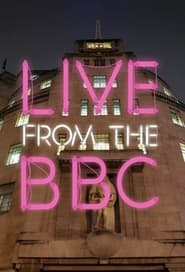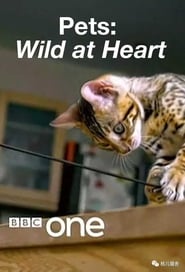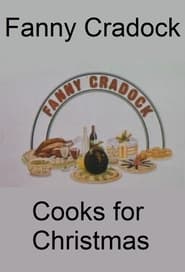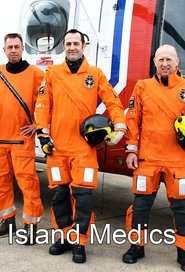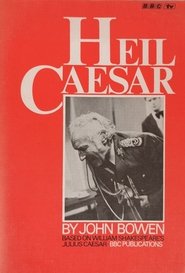Bbc One TV Series - Page 107
-
Live from the BBC
2016
Live from the BBC
2016
Showcasing some of the best new comedy talent, filmed in the iconic Radio Theatre at Broadcasting House. -
Hospital Heroes
2008
Hospital Heroes
2008
-
Andy Pandy
1950
star 7Andy Pandy is a British children's television series that premiered on BBC TV in June or July 1950. Originally live, a series of 13 filmed programmes was shown until 1970, when a new coloured series was made. The show was the basis for a comic strip of the same name in the children's magazine Robin. -
Blue Peter Special Assignment
0000
Blue Peter Special Assignment was a factual BBC TV series broadcast in the 1970s and early 1980s, the first spin-off from the long running BBC series Blue Peter. It ran regularly from 1973 until 1981, usually at weekends on BBC1, and was heavily promoted on Blue Peter itself. The concept for the series was developed after Valerie Singleton had made a successful documentary 'special' with HRH Princess Anne when she had visited Kenya in 1971. The Special Assignment series was mainly produced by Edward Barnes and presented initially by Valerie Singleton and later by Peter Purves, Lesley Judd and reportedly Simon Groom, all of whom had been presenters on Blue Peter itself. Series One featured Valerie Singleton looking at six European Capital Cities. These included Rome, Paris, London, Edinburgh, Amsterdam and Brussels. The first programme to be filmed was the one featuring Rome and included a personal address to the children of Britain from Pope Paul VI in The Vatican. Series Two continued to feature Singleton lookin -
Pets: Wild at Heart
2015
star 8We may think of our pets like another member of the family, but they exist in a secret world that we would hardly recognize. In this series new filming techniques reveal the incredible secrets of pets' behavior and wild nature. -
Fanny Cradock Cooks for Christmas
1975
Fanny presents a collection of traditional Christmas recipes from the 1970s. Petit fours, mincemeat, cake, turkey and the pudding… we've got your whole Christmas meal covered -
Spine Chillers
1980
star 4Spine Chillers was a 1980 British children's supernatural television series broadcast on BBC1. It featured readings of classic ghost and horror stories aimed at older children, and ran for 20 episodes of 10 minutes each. -
The X Creatures
0000
The X Creatures
0000
The X Creatures is a British documentary television series that was produced by the BBC in 1998, which was broadcast in 1999 on BBC 1. It was presented by Chris Packham, and examined the possibility of the existence of cryptozoological creatures. The name of the show was a reference to the popular fictional television show The X-Files. Each episode involved Chris Packham travelling to a certain place on Earth where the creature supposedly exists, and examining eye witness accounts, as opposed to searching for the creature. No VHS or DVD releases were ever made. -
Island Medics
2017
star 6Behind the scenes at the UK's most remote hospital, the Gilbert Bain in Shetland, which provides emergency and medical care to the islands' 23,000 residents. -
The Journey
1985
The Journey
1985
A series of ten programmes featuring playwright Peter Terson and reporter Dennis Skillicorn as they travel by gypsy wagon along the old pilgrims' route from Winchester to Canterbury. -
Street Doctor
2007
Street Doctor
2007
Street Doctor is a prime-time health series which was first shown in January 2007 on BBC One television. The format involves four GPs who take to the streets to diagnose, advise and treat people wherever they might be—at work or out and about. Locations have included high streets, ferries, restaurants, factories, markets, theatres, sports grounds, the Great North Run, race courses and the ballet. The four GPs who appear in the show are Dr Ayan Panja, Dr Jonty Heaversedge, Dr Barbara Murray, and BMA council member Dr George Rae. They are all full-time GPs practising in the United Kingdom. The second series visited Nottingham, the Isle of Man, Manchester, London, Bristol, Bangor, Edinburgh and York, using locations such as Covent Garden and the Royal Exchange Theatre. A spin-off from the show called Beach Doctor was also commissioned and was shown as part of BBC One's The One Show in August 2007. Street Doctor had originally been made as a pilot and was commissioned independently of The One Show despite bein -
Heil Caesar
1973
Heil Caesar
1973
The growing ambition of Julius Caesar is a source of major concern to his close friend Brutus. Cassius persuades him to participate in his plot to assassinate Caesar but they have both sorely underestimated Mark Antony. -
BBC 100 Women
2022
BBC 100 Women
2022
High-profile women from the spheres of entertainment, sport, business and politics speak to BBC presenters about their work, life and ambitions -
Phillip's Wish
0000
Phillip's Wish
0000
Phillip's Wish is a television programme aimed at children, broadcast on the BBC, produced for BBC Kids World & The Britt Allcroft Company by Hibbert Ralph Entertainment. -
Incredible Games
0000
Incredible Games
0000
Incredible Games was a popular children's game show which was broadcast between 30 January 1994 and 14 March 1995 and aired on BBC1. It included a variety of games, performed by contestants between the ages of 10 and 13. The show itself was set in a fictional skyscraper with a talking lift. In the first series, the lift was played by David Walliams, who later starred in Little Britain. In the second series, the lift was given a name, Sam, and was played by Gary Parker. Sam the Lift is popularly confused with the character played by Mark Speight in the CITV show Scratchy & Co.. The aim of the show was to complete each game, gradually rising up the tower. In the first series this climaxed in the alphabet soup game, and in the second series upon reaching the penthouse, where prizes could be won. In series two if a player lost a game, they were sent to the "basement" of the tower, and the other players had to take the lift back down to rescue them. In the first series the lift doors would open directly into game, wher -
The General
1998
The General
1998
The General was a BBC fly-on-the-wall Television series hosted by Yvette Fielding, Chris Serle and Heather Mills. Based at Southampton General Hospital, the programme tracked the progress of selected patients, including outpatients, at the hospital. The series was broadcast live every weekday on BBC One, in a daytime slot. 61 episodes of the programme were aired in total; 58 of them in 1998, and the other three in 2002. The original director of the series was Dave Heather. As well as the presenting team tracking patients and staff in the hospital, the programme also featured Heather Mills abseiling down the side of the hospital and demonstrating various uses for her prosthesis. However, it was alleged some years after the series finished that Mills was appointed to the presenting role under false pretences, having claimed that newspaper articles written by a journalist namesake were written by herself. The show also featured occasional celebrity guest appearances, including a visit from endurance expert Mike Stro -
Fake Britain
2010
Fake Britain
2010
Fake Britain is a UK BBC consumer rights programme, currently presented by Matt Allwright since 2013, however the show was previously presented by Dominic Littlewood between 2010 to 2012. The programme airs weekdays in a daytime slot, however shortened down repeats are often shown in the primetime evening slot. The programme covers various aspects of counterfeiting and effects on consumers including dangerous tools, ineffective or dangerous medicines, shoddy goods sold under reputable names, documents used for identity theft. -
Johnny Kingdom: A Year On Exmoor
2006
Grave-digger Johnny Kingdom presents a look at the wildlife of the moors and woodlands of Exmoor. -
James the Cat
0000
star 9James the Cat was a children's series created by Kate Canning and produced by Jan Clayton with Grampian Television. It chronicles the many events which take place at the Cornerhouse between James and his new friends. Fellow characters include: Mrs. Lavender, a snail; Frida, a kangaroo; Citroen, a French frog; Rocky, a dimwitted rabbit; and Dennis, a pink fire-breathing Welsh-accented Chinese dragon. There is also a beehive in the garden at the Cornerhouse. Next door are Ma and Pa Rat, and their rat children. The show changes quite a bit between the two seasons. In the first, James is a newcomer to the garden at the Cornerhouse, and must learn to live with the other animals there. In the first episode of the second season, James becomes a diplomat. In subsequent episodes, he and the others travel to distant lands or receive important visitors. Despite the fact that he can't spell, James is a perfect choice for a diplomat, as he is a tuxedo cat, and quite pompous. Each episode runs for about 5 minutes. This show i
